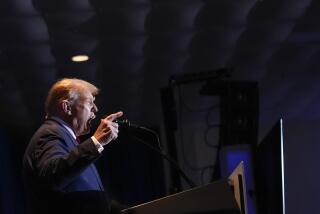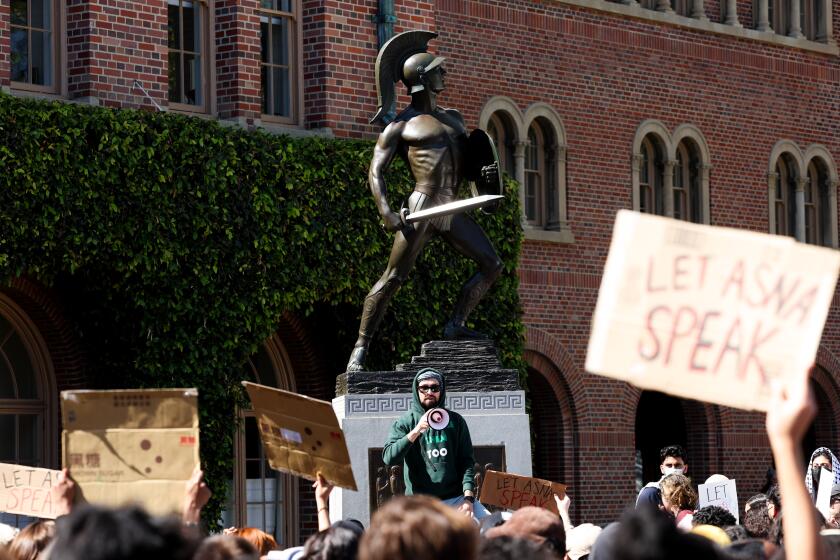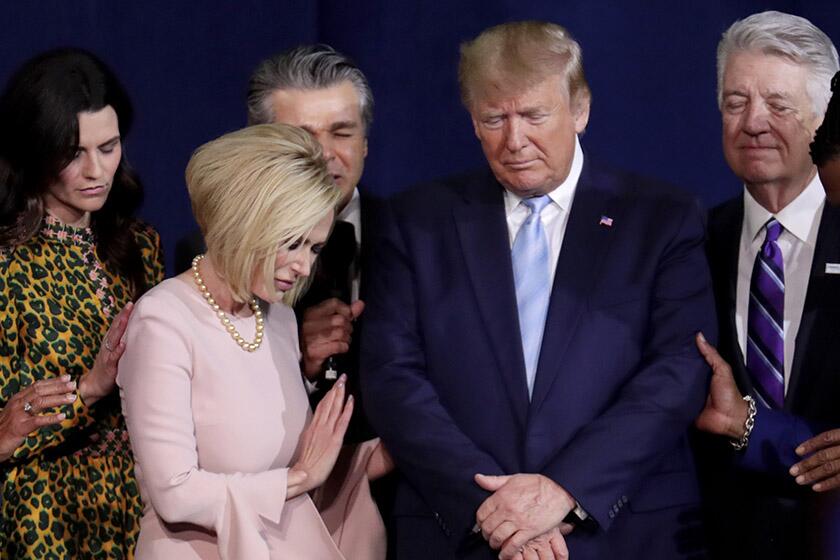Mayor Bloomberg defines racism down, but he’s not alone
Twitter lit up with denunciations of New York Mayor Michael Bloomberg recently after he accused one of the candidates seeking to succeed him of running a “racist” campaign. But the case against Bloomberg was muddied when the magazine that reported the accusation revised its story.
My takeaway from the episode is that -- like the word “hate” -- “racist” is being defined down (and not just by Bloomberg) to the point that it has lost a lot of its clarity.
The racism issue arose in the context of Bloomberg’s criticism of New York Public Advocate Bill de Blasio, the front-runner in Tuesday’s Democratic primary for mayor. As the New York Daily News reports: “De Blasio’s wife is black and has been a constant presence in his campaign, as has the couple’s 16-year-old son, Dante, who has starred in two TV ads -- and whose towering Afro has become a campaign talking point.”
In an article in New York magazine, interviewer Chris Smith noted that De Blasio “has in some ways been running a class-warfare campaign.” Bloomberg interjected: “Class warfare and racist.” When Smith questioned the term “racist,” Bloomberg replied: “I mean he’s making an appeal using his family to gain support. I think it’s pretty obvious to anyone watching what he’s been doing. I do not think he himself is racist.” Later, the story was amended at Bloomberg’s request to note that his actual reply to the question “racist?” was: “Well, no, no, I mean he’s making an appeal using his family to gain support...” etc.
I’m not sure the “Well, no, no” makes that much of a difference. In both versions of the quotation, Bloomberg uses the word “racist” in two different ways -- as a synonym for racially themed (letting black voters know you have a black son) and as a reference to racial bigotry. Bloomberg makes it clear in the interview that he is accusing De Blasio of only the first sort of “racism.”
“It’s comparable to me pointing out I’m Jewish in attracting the Jewish vote,” Bloomberg said. “You tailor messages to your audiences and address issues you think your audience cares about.”
Maybe Bloomberg had a brain freeze and meant to say “racial,” not “racist.” But it’s also possible that he made the slip because these days the words “racist” and “racism” are used promiscuously in political discourse.
The Merriam-Webster dictionary offers two definitions of “racism”: “1) a belief that race is the primary determinant of human traits and capacities and that racial differences produce an inherent superiority of a particular race; 2) racial prejudice or discrimination.”
But for years the term and its variants also have been used more loosely to mean “disadvantageous to a particular race” (as in “institutional racism” or “racist Republican economic policies”) or as synonyms for political campaigns designed to appeal to a racial demographic (during the 2012 campaign, conservatives denounced President Obama for the “racist” act of launching a group called African Americans for Obama).
Maybe Bloomberg’s gaffe will lead to a return to the dictionary definition of racist, but I doubt it. Even when it is used in its looser sense, it packs a powerful punch. And politicians use language not to educate but to score points.
ALSO:
There’s no unlimited right to bear arms
John Kerry’s me-and-my-big-mouth solution on Syria
Jenny McCarthy on ‘The View’: Trust doctors, not stars, on vaccines
More to Read
A cure for the common opinion
Get thought-provoking perspectives with our weekly newsletter.
You may occasionally receive promotional content from the Los Angeles Times.






